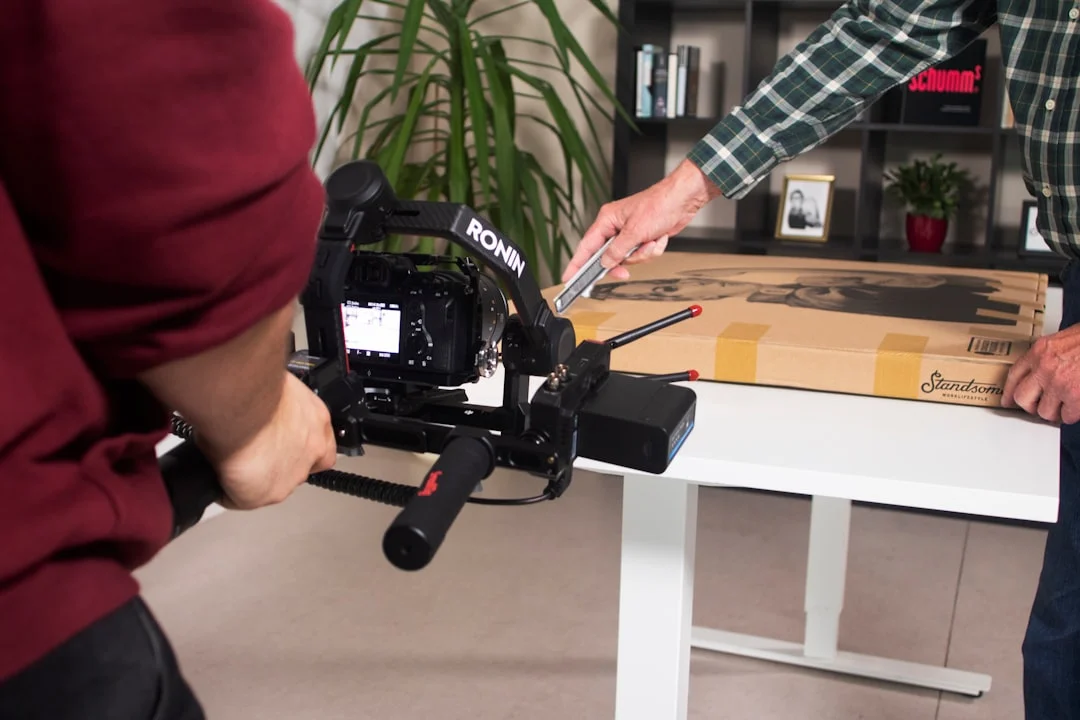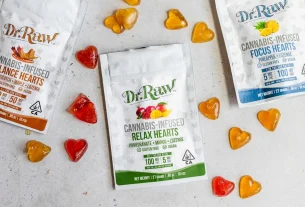Estimated Reading Time: 9 minutes
HHy there, health enthusiast! Let’s talk about something that’s become increasingly popular – CBD.
Whether you’re curious about incorporating it into your wellness routine or have already started, you’ve probably wondered: how long does CBD stay in your system?
It’s a fair question, and the answer, like most things related to our bodies, isn’t always straightforward.
This is a journey through the science, the variables, and what you can expect when using CBD.
I’ve taken CBD myself for a while now for managing occasional stress, so I’m keen to share what I’ve learned.
So, what’s the deal with how long does CBD stay in your system? The primary factor influencing this is your body’s metabolism.
Think of your metabolism as your body’s engine; it dictates how quickly things are processed and eliminated.
For CBD, the liver plays a critical role, breaking it down into various metabolites.
These metabolites are then eventually excreted, mainly through urine, but also through feces and sweat.
But how do we arrive at a definitive timeframe for how long does CBD stay in your system?
Generally, CBD can remain detectable in your system for a range of time. It can be for as little as a few days or up to several weeks.
This variance stems from several key factors that we’ll explore further.
Let’s dive into what makes how long CBD stays in your system vary so widely from person to person.
It’s like the ingredients in a recipe – each component makes a difference.
One of the most obvious factors is dosage.
If you’re taking a higher dose of CBD regularly, it will likely stay in your system longer than if you’re taking a smaller dose infrequently.
This makes intuitive sense. Think of it like food; eating a large meal means it takes longer for your body to process everything.
How you take CBD also matters.
Inhaling CBD (vaping or smoking) typically leads to faster absorption but also a shorter duration in the body, usually lasting a few hours.
Edibles, on the other hand, can take longer to absorb (sometimes over an hour) and, as a result, may linger in your system for a longer time.
Topical applications often have the shortest retention time, as the CBD is usually absorbed locally rather than circulating through your bloodstream extensively.

As mentioned earlier, your metabolism is key. Factors like your age, weight, and overall health all play a role.
People with faster metabolisms tend to process CBD more quickly. Also, lifestyle choices impact your metabolism.
Regular exercise and a healthy diet may help your body process substances more efficiently.
CBD is fat-soluble, meaning it’s stored in your fat cells. Individuals with a higher body fat percentage may retain CBD for a longer duration.
The purity and concentration of the CBD product you use are crucial.
Products that are mislabeled or contain contaminants could influence detection times.
Certain medications and supplements can affect how your body processes CBD. Always consult with your doctor if you’re taking other medications.
Scientific studies have provided a range of estimations about how long does CBD stay in your system, offering some insights into the retention times we can reasonably anticipate.
Research from reputable sources often estimates that CBD can be detected in the body for anywhere from a few days to a few weeks.
The range highlights the variation discussed above.
A 2018 study published in the journal of the American Medical Association, for example, examined the detection of cannabinoids in urine samples.
While not specifically focused on CBD, it underscores the complexities of detection times.
Moreover, the specific tests used to detect CBD matter.
Urine tests, blood tests, saliva tests, and hair follicle tests all have different detection windows.
Blood tests typically detect CBD for a shorter duration (usually a few days), while hair follicle tests have the longest detection window.
Understanding how long does CBD stay in your system is essential, especially if you’re subject to drug testing or have other health concerns.
There are some steps you can take.
Always start low and go slow with your CBD dosage.
Begin with a smaller amount and gradually increase it until you find what works best for you.
This approach helps you understand your body’s response and minimize any potential side effects.
Also, I’ve always found it prudent to get a feel for the impact of the CBD on my system before taking it before any important event.
Prioritize quality. Choose reputable brands that provide third-party lab testing for their products.

These tests verify the product’s cannabinoid content and check for contaminants.
Be mindful of interactions. Consult your doctor before using CBD, especially if you’re taking other medications.
Some medications can affect how CBD is metabolized.
If you’re subject to drug testing, be aware of the detection windows and the specific tests used.
Consider using a CBD isolate product, which contains only CBD and no other cannabinoids, to minimize the risk of testing positive for THC (tetrahydrocannabinol), the psychoactive compound in cannabis.
It’s important to note that even isolate products *can* sometimes contain trace amounts of THC due to manufacturing processes; always research the brand thoroughly.
There are several common misconceptions surrounding how long does CBD stay in your system.
One of the biggest is that CBD is just like THC, the primary psychoactive compound in marijuana.
While CBD can be derived from the cannabis plant, it does not cause the same psychoactive effects as THC.
Furthermore, the length of time that CBD remains in the body can be vastly different, depending on various factors that we’ve already discussed.
Another misconception is that there are quick fixes to remove CBD from your system. Unfortunately, this isn’t true.
The body eliminates CBD through its natural metabolic processes. Claims of certain products or methods speeding this up are often unsubstantiated.
Also, it is often claimed that CBD will “cure” a wide range of conditions.
While preliminary studies suggest potential benefits, more research is needed.
CBD use is generally associated with managing symptoms like stress and discomfort.
From personal experience, I’ve realized that consistency is key.
I’ve found that the more regularly I take CBD, the more in tune I become with my body’s response.
There was a period where I took CBD irregularly and noticed that my experience was less predictable. It’s not a one-size-fits-all.
It’s about finding your optimal dose and frequency.
I’ve also learned the importance of reading product labels carefully and researching brands.
Some products contain higher levels of THC than advertised, leading to unexpected outcomes, particularly if I’m subject to drug testing.
Transparency in labeling is critical. Choose reputable brands.

Remember, you should always consult with a healthcare professional.
They can provide personalized advice and help you understand how CBD interacts with your unique physiology. My doctor gave me some great insights.
So, how long does CBD stay in your system? The answer is nuanced, influenced by multiple factors.
The duration varies from person to person, depending on dosage, method of consumption, metabolism, and other individual characteristics.
The key takeaway? Knowledge is power. Understand the factors, choose quality products, and listen to your body.
By taking an informed approach, you can incorporate CBD into your wellness routine safely and effectively.
Don’t be afraid to experiment, but always prioritize safety and consult your healthcare provider.
Remember, the goal is to find what works best for you and improve your overall well-being.
I think that with these ideas in mind, you’re well-equipped to make informed decisions. Here’s to a healthier you!
Please note: This information is for general knowledge and informational purposes only, and does not constitute medical advice.
It is essential to consult with a qualified healthcare professional for any health concerns or before making any decisions related to your health or treatment.
Frequently Asked Questions
Can CBD show up on a drug test?
Yes, it’s possible, although it depends on the type of test and the CBD product used. Most standard drug tests screen for THC (tetrahydrocannabinol), the psychoactive compound in cannabis. Some CBD products contain trace amounts of THC, which could lead to a positive result.
Also, the duration of CBD in your system is a factor. To minimize the risk, choose CBD isolate products or products that have been third-party tested to ensure they are THC-free. Always inform your employer or the testing facility that you are taking CBD, as well, in case the test detects it.
Does the method of CBD consumption affect how long it stays in my system?
Absolutely. Different consumption methods affect how quickly CBD is absorbed and metabolized. Inhaling CBD (vaping or smoking) generally leads to faster absorption but a shorter duration in the body, typically a few hours.
Edibles can take longer to absorb (sometimes over an hour) but may linger in your system for a longer period. Topical applications often have the shortest retention time, as the CBD is usually absorbed locally rather than circulating extensively.
How can I find quality CBD products?
Look for products that provide third-party lab testing, which verifies the cannabinoid content and checks for contaminants. Reputable brands will make these lab reports easily accessible, often on their websites or product packaging.
Always review the lab results to ensure the product contains the stated amount of CBD and is free from harmful substances like pesticides and heavy metals. Choosing full-spectrum products means a wider range of cannabinoids and terpenes, providing potential benefits.
The product labels must be transparent about what’s in the product.
Can I speed up the process of removing CBD from my system?
Unfortunately, there’s no magic bullet to speed up the elimination of CBD from your system. The body processes CBD through its natural metabolic processes, primarily through the liver.
While staying hydrated and maintaining a healthy lifestyle (including regular exercise and a balanced diet) can support your metabolism, they won’t significantly affect how quickly your body eliminates CBD. It’s best to be patient and allow your body to do its work.
Are there any side effects of taking CBD?
Yes, although generally considered safe, some people experience side effects like fatigue, diarrhea, and changes in appetite or weight. These side effects are typically mild. Taking too much CBD can also cause drowsiness.
It’s always wise to start with a low dose and gradually increase it, observing your body’s reactions. Consult your doctor before using CBD, particularly if you’re taking other medications, as it may interact with certain drugs.



